
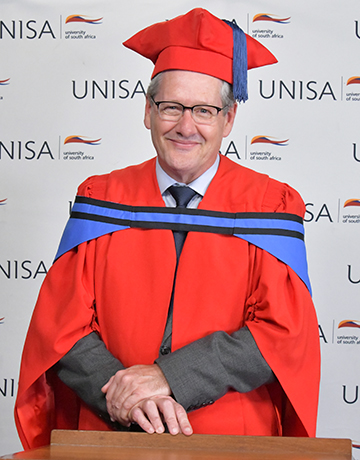
Prof Anthonie van Nieuwkerk
Professor Anthonie van Nieuwkerk recently delivered his inaugural lecture titled African international relations: reflections on theory and practice. He is a Professor of International and Diplomacy Studies at the Thabo Mbeki African School of Public and International Affairs, Unisa.
The Vice-Principal of Teaching, Learning, Community Engagement and Student Support, Professor Zodwa Motsa Madikane, officially presided over the lecture. She opened and welcomed presenters and guests. In her opening remarks, she said inaugural lecturers are a rite of passage in one's journey of scholarship and acknowledged that van Nieuwkerk's topic for the lecture demonstrate his agility in matters concerning the African continent.
Professor Sibusiso Vil-Nkomo, Executive Dean, Thabo Mbeki African School of Public and International Affairs, introduced the inaugurate and read his biography. Van Nieuwerk referenced the Russia, Ukraine and North Atlantic Treaty Organisation (NATO) war as a backdrop for his lecture. He highlighted the urgent task for African intellectuals to review, reflect and provide analysis and recommendations to African leaders on what could be done to strengthen the African position in global affairs.
He said: "The longstanding tensions between Russia and members of NATO sit at the heart of a fast-evolving international crisis centred on Ukraine." Following a series of crisis events, on 24 February 2022, Russia unleashed a full-spectrum war on Ukraine. "On this day, the world changed," argued van Nieuwerk.
He stressed that experts and the public scrutinise the strategic calculations informing the United States of America (USA), the European Union (EU), NATO, Russia, Ukraine, and other influential players. "Indeed, the conflagration has severe consequences for the world at large," he said. "How should Africans – from the public and private sectors, and citizens at large – understand and respond to this apparent recalibration of world order?" asked van Nieuwkerk.
He argued that African scholars of international relations are obliged to interpret the world they live in for the benefit of Africans. "This obligation arises from their privileged position in their social environment," he stressed. Adding: "In undertaking this public service, and the associated task of building responsive capacity, they must be clear about their paradigmatic lenses. They cannot be indifferent to Africa's history of slavery, colonialism, and empire." Van Nieuwerk emphasised that using–or developing – African-inspired theoretical lenses is preferable. If they don't, they risk reproducing Eurocentric worldviews shaped overwhelmingly by their social scientists.
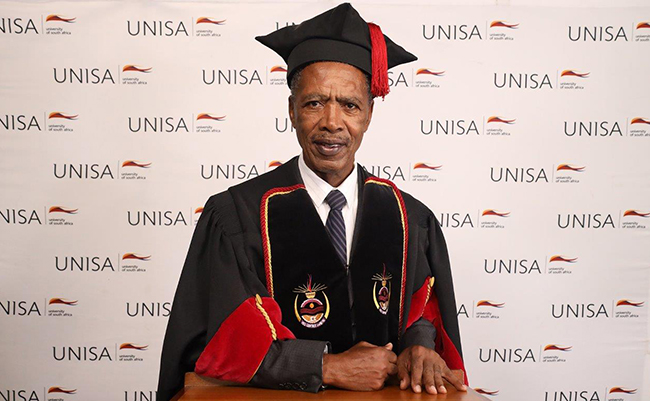
Prof Sibusiso Vil-Nkomo, Executive Dean, Thabo Mbeki African School of Public and International Affairs
Van Nieuwerk argued that we live in an international environment of volatility, uncertainty, complexity, and ambiguity (VUCA). He said: "This world is the product of the clash of declining and rising empires, demands an explanation from specialists of why and how we have arrived at this state and what will happen next." But, he asked: "Would international relations and foreign policy specialists be able to do so?" He continued, "Could they interpret the world and offer words of comfort or warning?"
Van Nieuwerk continued to ask, "What else is the purpose of an African international relations professor?" He explained that for any scholar associated with Unisa, the context is essential. "Interpreting the world and its impact requires African lenses, but which lenses precisely, one might ask, and ultimately, to what purpose?"
The lecture offered a set of theoretical orientations to assist the researcher, analyst and student in Africa's place in the world. In summary, van Nieuwkerk posits that the theoretical approach is that Africans can use deep insights across disciplinary approaches to address the key challenge of our times.
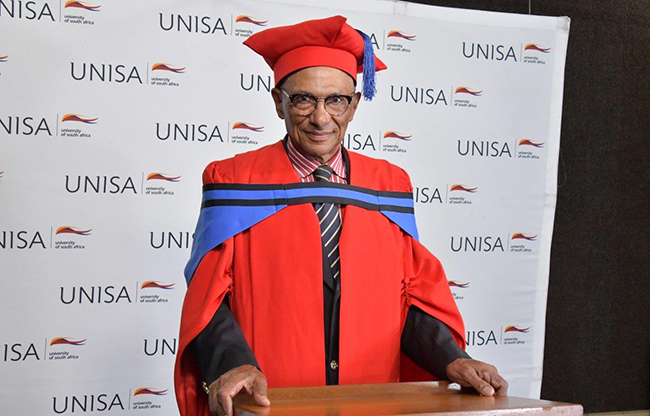
Prof Garth le Pere, University of Pretoria
Responding to the lecture, Professor Garth le Pere from the University of Pretoria and a Senior Associate of the Mapungubwe Institute for Strategic Reflection said the lecture was well-considered, thoughtful, lucid, and wide-ranging in its academic scope, intellectual rigour, and personal reflections.
He further said that the lecture represented a grand metaphor in how it considers the intersection between theory and practice on the one hand and that with fortitude and forthrightness, it bore witness to the atrophy of ideas to drive strategy and policy; it also documented incidents of a lack of good diplomatic conduct, as well as the worrying decline in the quality and experience of diplomats, all of which bear the hallmarks of expediency when making political appointments in the foreign service.
Publish date: 2023-02-28 00:00:00.0
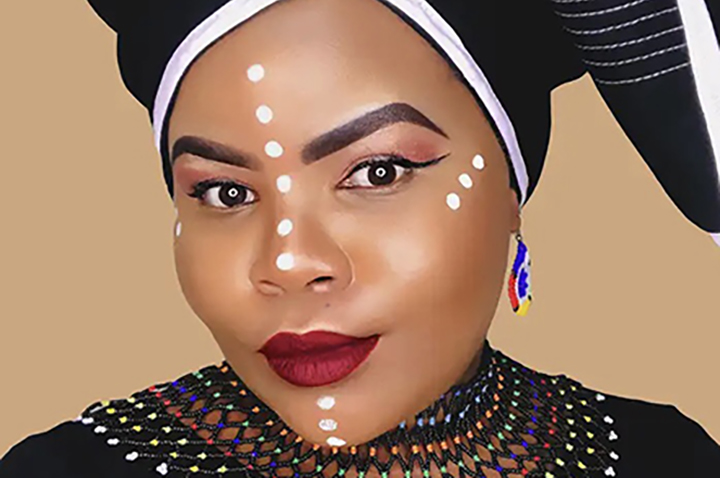 Unisa empowers award-winning agro-cosmetics entrepreneur
Unisa empowers award-winning agro-cosmetics entrepreneur
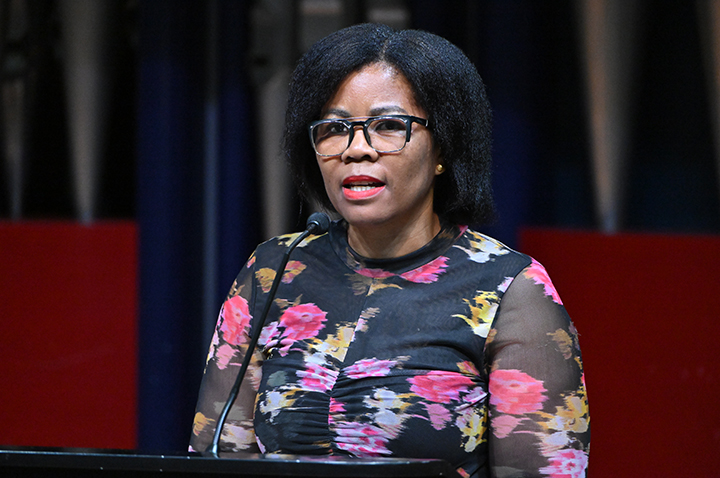 Unisa initiative offers early-career academics "a stepping stone towards greatness"
Unisa initiative offers early-career academics "a stepping stone towards greatness"
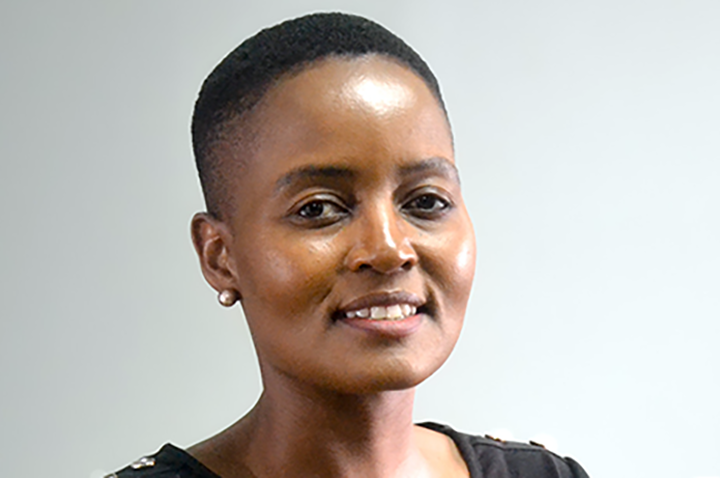 Seasoned meteorologist joins Unisa
Seasoned meteorologist joins Unisa
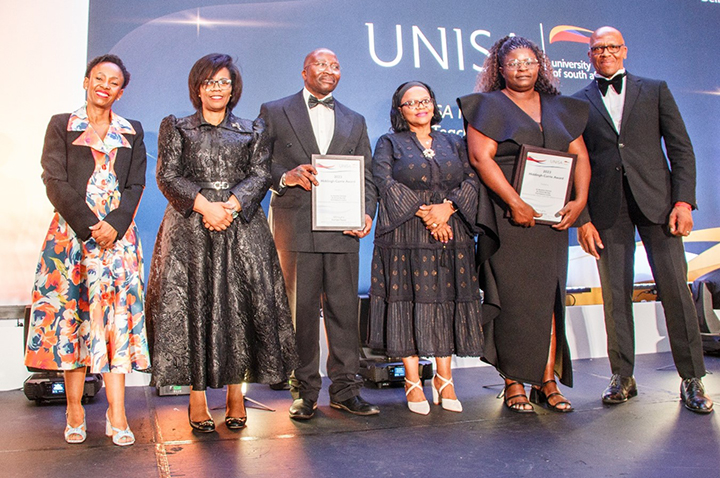 Unisa celebrates the 2023 and 2024 Hiddingh-Currie Award winners
Unisa celebrates the 2023 and 2024 Hiddingh-Currie Award winners
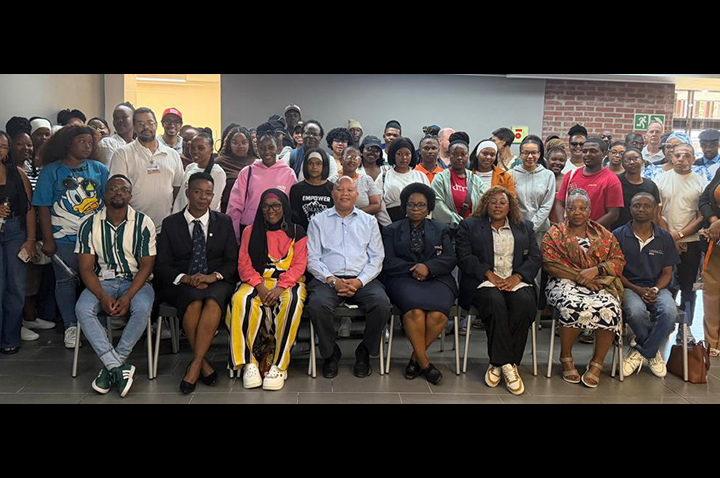 Unisa celebrates a project of hope, dignity and student success
Unisa celebrates a project of hope, dignity and student success